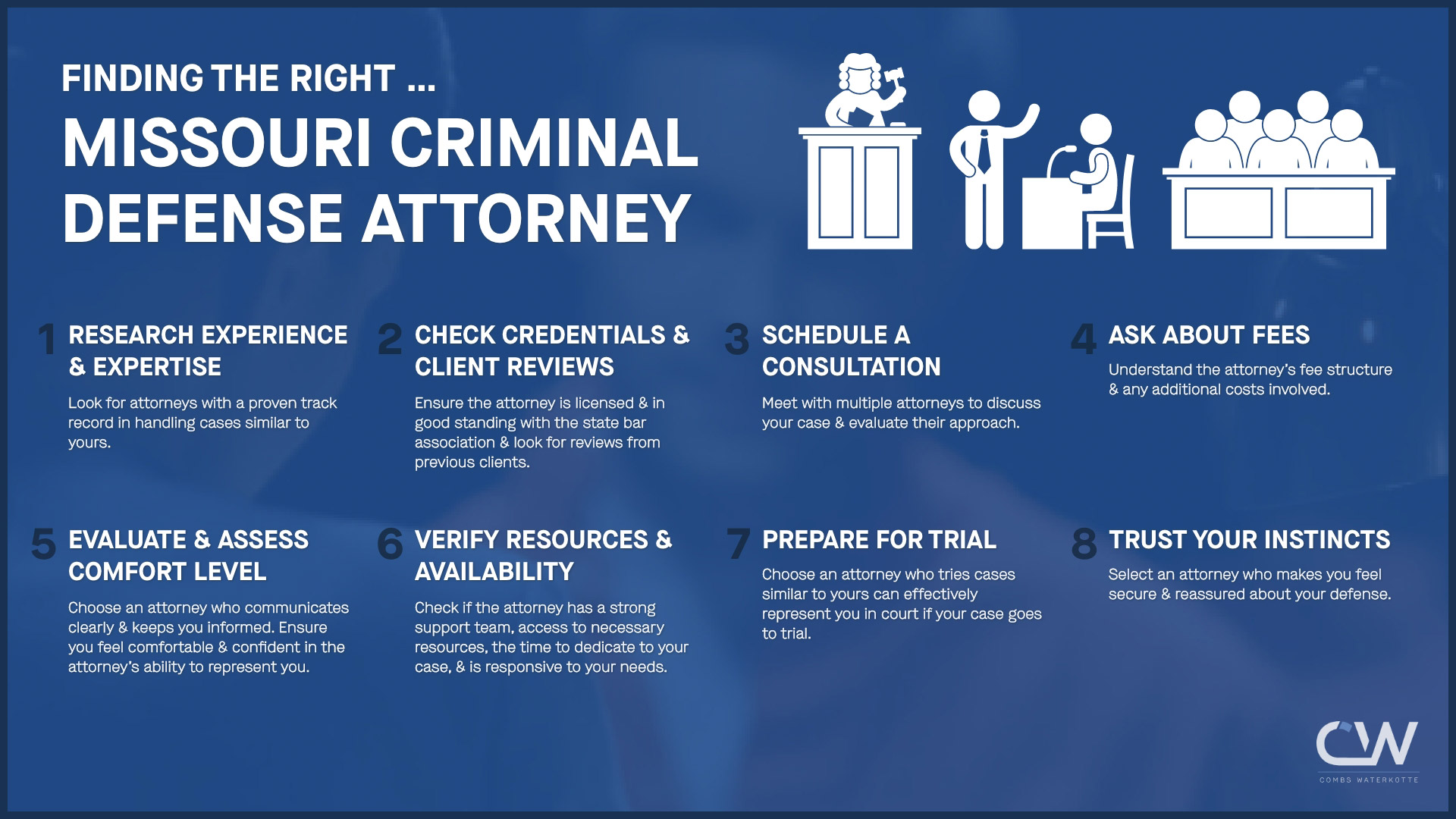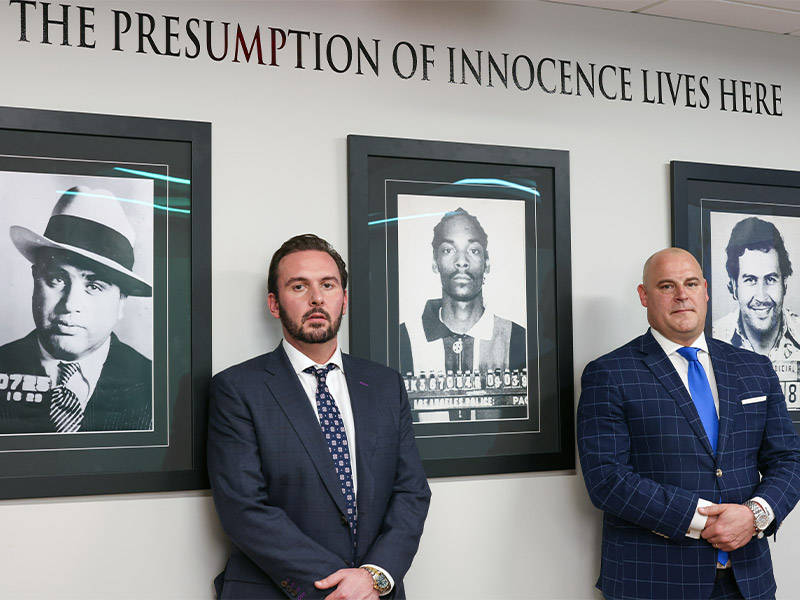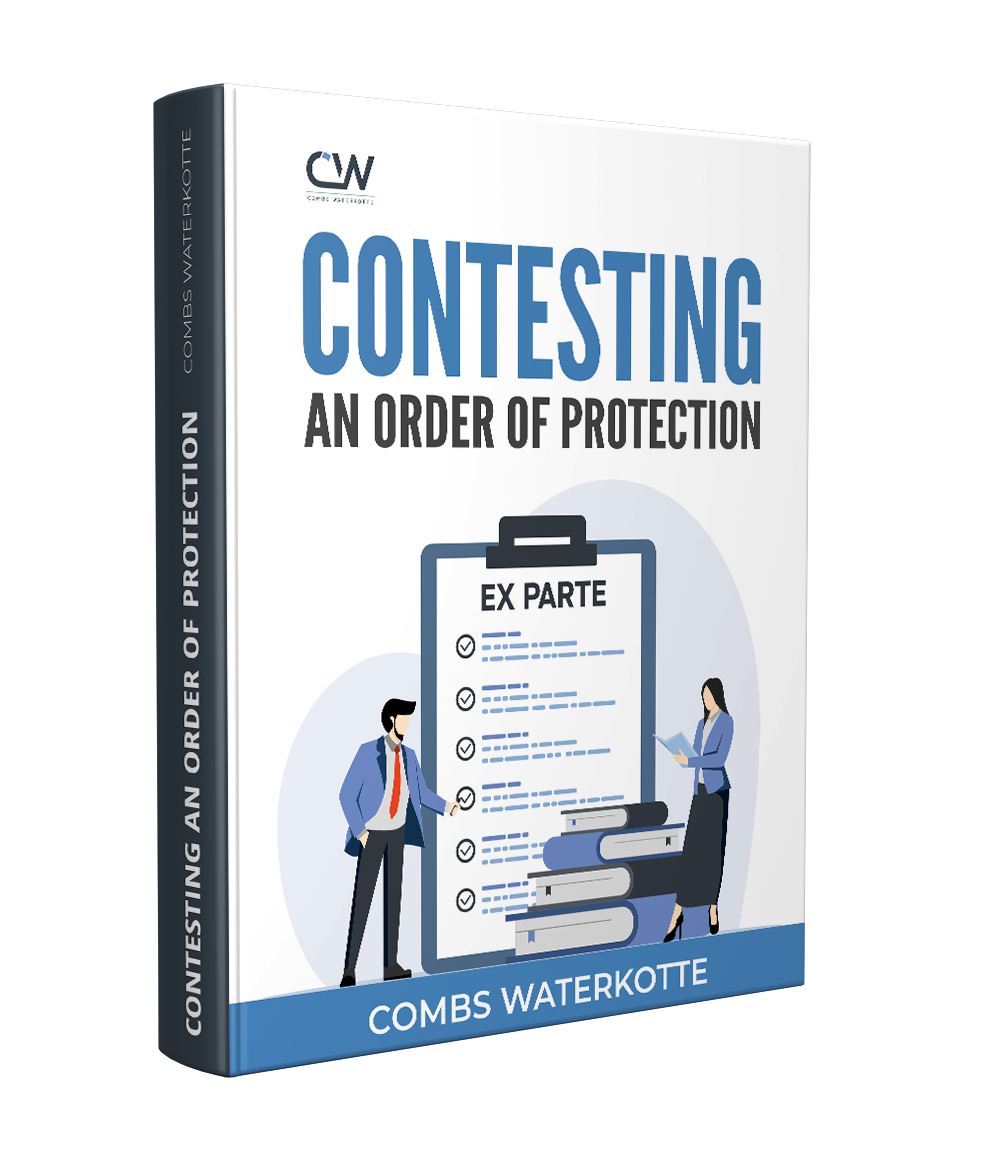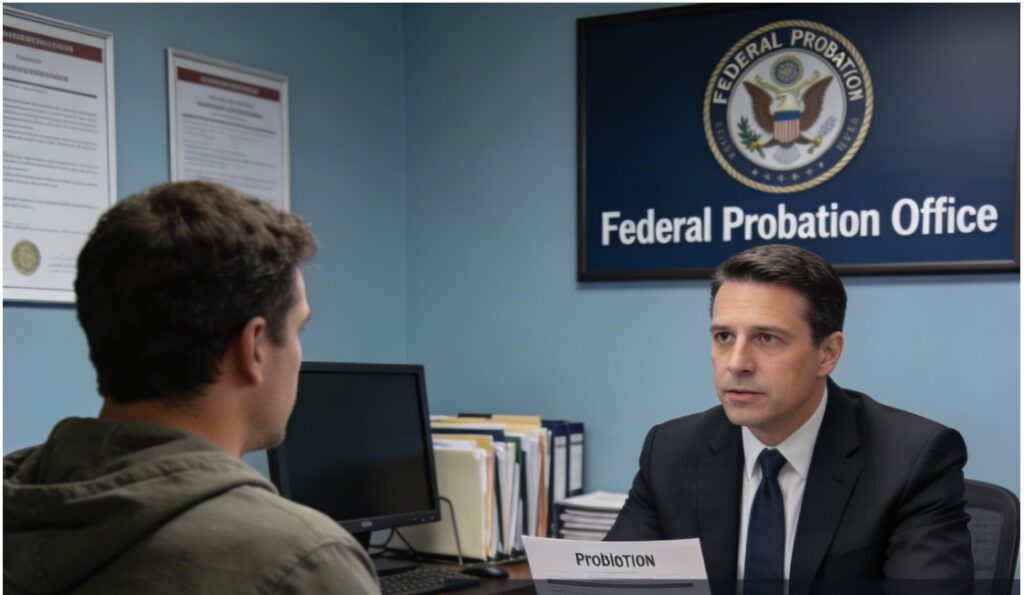Additional Links
- Criminal Lawyers With Payment Plans
- Exploring Different Types of Assault Charges and Their Defenses
- Understanding Violent Crime Defense
- Choosing the Right Violent Crime Defense Attorney
- If I’m Innocent, Do I Still Need a Criminal Defense Attorney?
- Should I Tell My Criminal Defense Lawyer That I’m Guilty?
- What Should I Do After Being Charged With a Crime?
- Top 10 Felony Questions
- Legal Videos
- Legal Books
- Defending Freedom Podcast

We help people just like you fight violent crime charges and protect their future. Speak to a St. Louis violent crimes lawyer today at (314) 900-HELP.
What Is Considered a Violent Crime in Missouri?
Missouri does not provide a single, formal definition of what constitutes a violent crime across all statutes. However, prosecutors, law enforcement, and courts commonly treat offenses involving physical harm, threats, weapons, or danger to others as violent crimes.
Missouri law specifically lists certain offenses as “dangerous felonies,” which closely align with what are generally considered violent crimes. These include charges like first-degree assault, first-degree robbery, first-degree kidnapping, armed criminal action, vehicle hijacking, murder, voluntary manslaughter, and first-degree arson when someone is seriously injured or killed.
Dangerous felonies in Missouri also carry enhanced sentencing rules. Under the 85 Percent Rule, offenders convicted of a dangerous felony must serve at least 85% of their sentence before becoming eligible for parole. In some cases, this mandatory minimum may apply until the offender reaches 70 years old and has served at least 40% of their sentence.
Some dangerous felony charges, including carjacking and sex crimes involving physical injury, can also carry additional sentence enhancements based on the circumstances of the offense.
You can review the complete list of dangerous felonies in §556.061(19) RSMo.

Types of Violent Crimes We Defend in St. Louis
Violent crime charges in Missouri can cover a wide range of offenses, from assault and robbery to weapons violations and homicide. At Combs Waterkotte, we defend clients against all types of violent crime allegations in St. Louis, no matter how serious or complex the case may be.
Assault Offenses
Assault charges in Missouri are among the most common violent crimes and are classified by degrees based on severity and circumstances. These offenses can involve causing or attempting to cause physical injury to another person, with or without a weapon.
- First-Degree Assault – Allegedly attempting to kill or seriously injure another person.
- Second-Degree Assault – Causing serious injury, often through reckless actions or while using a deadly weapon.
- Third-Degree Assault – Intentionally causing physical pain or minor injury to another person.
- Fourth-Degree Assault – Involves threatening behavior or offensive physical contact that does not result in serious harm.
- Aggravated Assault – Assault charges involving weapons, serious injuries, or repeat offenses.
Penalties for Assault Offenses in Missouri
| Offense | Missouri Statute | Potential Penalties |
|---|---|---|
| First-Degree Assault | §565.050 RSMo | 5 to 30 years in prison; Class A felony if serious injury results |
| Second-Degree Assault | §565.052 RSMo | Up to 7 years in prison; Class D felony |
| Third-Degree Assault | §565.054 RSMo | Up to 4 years in prison; Class E felony |
| Fourth-Degree Assault | §565.056 RSMo | Up to 1 year in jail; typically charged as a misdemeanor |
| Aggravated Assault | Varies by degree; often charged under §565.050 or §565.052 | Penalties depend on injury severity and weapon use; typically Class B or Class D felonies |
Homicide and Manslaughter Charges
Homicide charges are the most serious violent crimes in Missouri and often carry life sentences or the possibility of capital punishment. Manslaughter charges, while still severe, typically involve situations where the accused is alleged to have caused someone's death without premeditation.
- Murder and Homicide – Killing another person intentionally or during the commission of a serious felony.
- Voluntary Manslaughter – Killing another person in the heat of the moment, often with strong provocation.
- Involuntary Manslaughter – Causing someone's death through recklessness or criminal negligence.
- Vehicular Manslaughter – Fatal traffic accidents caused by careless or intoxicated driving.
Penalties for Homicide and Manslaughter Charges in Missouri
| Offense | Missouri Statute | Potential Penalties |
|---|---|---|
| Murder – First Degree | §565.020 RSMo | Life in prison without parole or death penalty |
| Murder – Second Degree | §565.021 RSMo | 10 to 30 years in prison or life in prison |
| Voluntary Manslaughter | §565.023 RSMo | Up to 15 years in prison; Class B felony |
| Involuntary Manslaughter | §565.024 RSMo | Up to 7 years in prison; Class D felony |
| Vehicular Manslaughter | Often charged under §565.024 RSMo | Up to 7 years in prison; Class D felony; longer sentences possible in aggravated cases |
Crimes Involving Force and Property
Some violent crimes in Missouri involve taking property through force, threats, or unlawful entry. These charges are often aggressively prosecuted, especially when weapons or violence against people are involved.
- Robbery – Taking property from another person by force or threat of harm.
- Burglary – Illegally entering a building with the intent to commit a crime, often when people are present.
- Vehicle Hijacking – Using threats or violence to steal a vehicle directly from another person.
Penalties for Robbery, Burglary, and Vehicle Hijacking in Missouri
| Offense | Missouri Statute | Potential Penalties |
|---|---|---|
| Robbery – First Degree | §570.023 RSMo | 10 to 30 years in prison or life in prison; Class A felony |
| Robbery – Second Degree | §570.025 RSMo | 5 to 15 years in prison; Class B felony |
| Burglary – First Degree | §569.160 RSMo | Up to 15 years in prison; Class B felony |
| Burglary – Second Degree | §569.170 RSMo | Up to 7 years in prison; Class D felony |
| Vehicle Hijacking | Often charged under § 570.023 RSMo (Robbery – First Degree) | 10 to 30 years in prison or life in prison; Class A felony |
Weapons Offenses
Weapons charges are often connected to violent crimes in Missouri. These offenses involve the illegal possession, use, or discharge of firearms or other dangerous weapons. Missouri law imposes severe penalties, especially when weapons are used in connection with other criminal acts.
- Gun Charges – Criminal accusations involving the illegal possession, carrying, or use of firearms.
- Other Weapons Offenses – Charges involving prohibited weapons, dangerous devices, or illegal weapon-related conduct.
- Unlawful Use of a Weapon – Includes displaying or discharging a weapon in a threatening or illegal manner.
- Illegal Discharge of a Firearm – Firing a gun unlawfully, often within city limits or in a reckless way.
- Possession of an Illegal Weapon – Having prohibited weapons such as sawed-off shotguns or unlicensed firearms.
- Unlawful Possession – Possessing a firearm when legally prohibited, such as by a prior felony conviction.
Penalties for Weapons Offenses in Missouri
| Offense | Missouri Statute | Potential Penalties |
|---|---|---|
| Unlawful Use of a Weapon | §571.030 RSMo | Up to 4 years in prison; Class E felony |
| Illegal Discharge of a Firearm | Often charged under §571.030 RSMo | Up to 4 years in prison; enhanced penalties possible in aggravated cases |
| Possession of an Illegal Weapon | §571.020 RSMo | Up to 7 years in prison; Class D felony |
| Unlawful Possession of a Firearm | §571.070 RSMo | Up to 7 years in prison; Class D felony |
| General Weapons Offenses | Varies by offense; typically charged under § 571.030 RSMo or related statutes | Penalties range from misdemeanors to Class D felonies depending on the circumstances |
Other Violent Felonies
In addition to assault, homicide, and weapons charges, Missouri law recognizes several other offenses as violent crimes. These cases often involve threats to personal safety, the use of weapons, or serious risks to human life.
- Armed Criminal Action – A separate felony charge filed when a weapon is used during the commission of another crime.
- Kidnapping – Forcibly removing or confining another person against their will.
- Arson – Intentionally setting fires that endanger people or property.
Penalties for Other Violent Felonies in Missouri
| Offense | Missouri Statute | Potential Penalties |
|---|---|---|
| Armed Criminal Action | §571.015 RSMo | Minimum 3 years in prison consecutive to the underlying felony; no parole or probation |
| Kidnapping – First Degree | §565.110 RSMo | 5 to 15 years in prison; Class B felony |
| Kidnapping – Second Degree | §565.120 RSMo | Up to 7 years in prison; Class D felony |
| Arson – First Degree | §569.040 RSMo | Up to 30 years in prison or life in prison if someone is seriously injured; Class A or B felony |
| Arson – Second Degree | §569.050 RSMo | Up to 7 years in prison; Class D felony |


What Happens After a Violent Crime Arrest in St. Louis?
Being arrested for a violent crime in St. Louis is a serious, fast-moving process. Here’s what typically happens after an arrest:
- Arrest and Booking: The police formally arrest and process you, taking fingerprints and photographs.
- Initial Bond Hearing: The court decides whether you are eligible for release on bail. Violent crimes often come with higher bond amounts or no bond eligibility.
- Formal Charges: The St. Louis Circuit Court or prosecuting attorney files the official criminal complaint.
- Arraignment: You appear in court to hear the charges and enter a plea of guilty or not guilty.
- Pretrial Hearings: Your defense team and the prosecution may file motions, challenge evidence, or discuss possible plea agreements.
- Trial or Plea Resolution: Your case is either taken to trial or resolved through a plea deal if appropriate.
Throughout this process, quick legal action can make a critical difference. Combs Waterkotte can step in immediately to protect your rights, manage police interactions, and fight to minimize the charges against you.
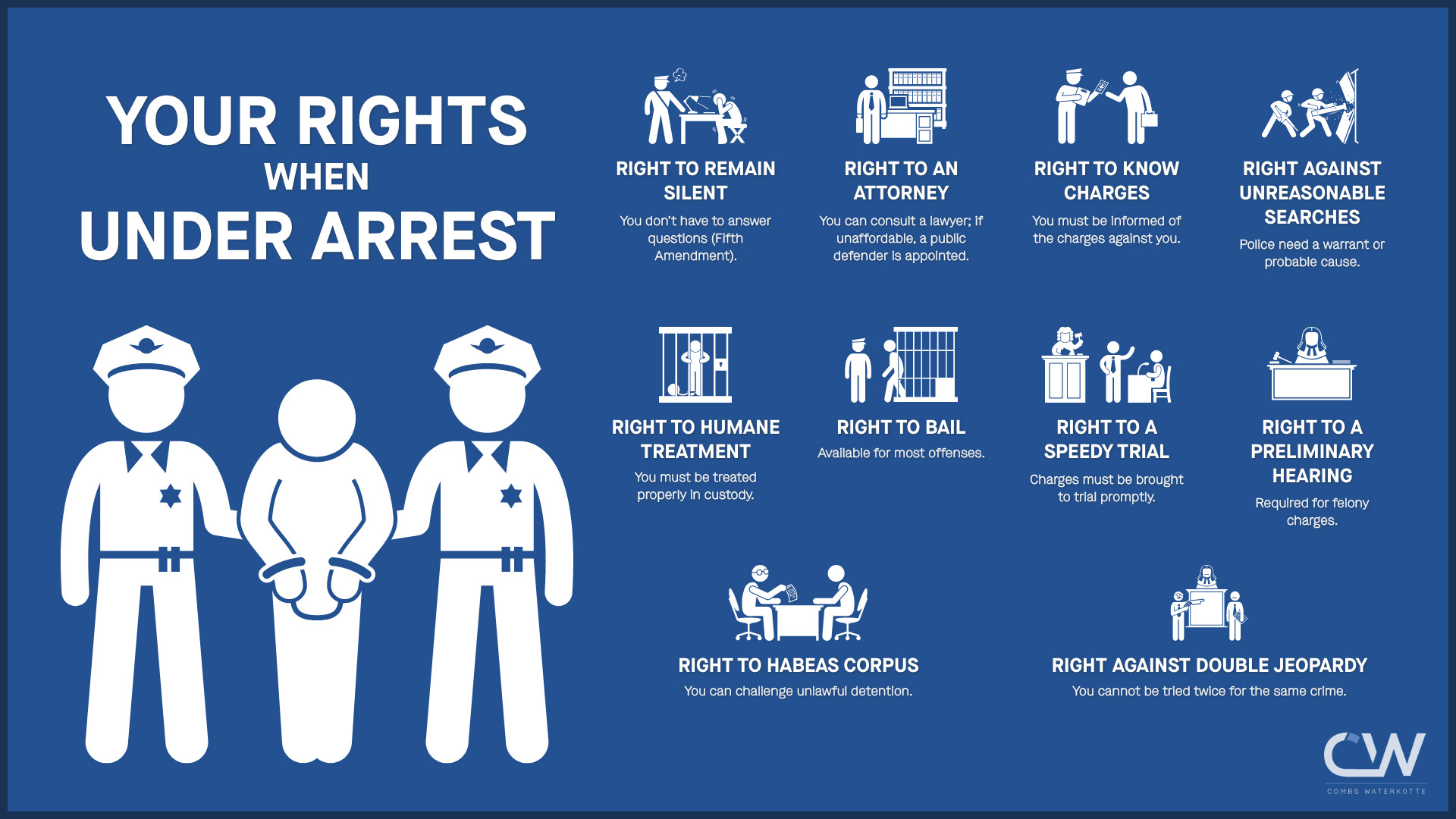
What to Do If You’ve Been Arrested for a Violent Crime in St. Louis
If you’ve been arrested for a violent crime in St. Louis, what you do next can directly impact your freedom, your case, and your future. Follow these steps immediately:
- Stay Silent: You have the right to remain silent. Do not answer police questions, try to explain yourself, or make any statements about the incident. Anything you say can be used against you in court.
- Clearly Request a Lawyer: You must explicitly tell officers, “I want to speak to a lawyer.” Do not answer any further questions until your attorney is present.
- Do Not Resist or Argue: Stay calm and cooperate with the arrest process physically. Resisting arrest can result in additional charges, even if you believe the arrest is unfair.
- Do Not Discuss the Case with Anyone: Never talk about your charges or what happened with friends, family, cellmates, or over the phone from jail. Police may monitor your calls and conversations.
- Do Not Post on Social Media: Anything you post can be subpoenaed and used against you. Stay completely offline until your case is resolved.
- Contact Combs Waterkotte Immediately: Call us as soon as possible. Getting a skilled St. Louis violent crimes lawyer involved early can help protect your rights, challenge weak evidence, and build your defense from the start. We are available 24/7 and can come to meet you in jail or immediately after arrest at any time.
Following these steps can significantly improve your chances of a favorable outcome. Combs Waterkotte can step in right away to help you navigate the system and fight for your freedom.

Defense Strategies for Violent Crime Charges in St. Louis
Facing violent crime charges does not automatically mean you will be convicted. There are many proven defense strategies that can challenge the evidence, weaken the prosecution’s case, or lead to reduced charges or dismissal.
- Self-Defense: Showing that you acted to protect yourself from harm and used reasonable force under Missouri law.
- Defense of Others: Proving you acted to defend someone else from imminent danger or harm.
- Lack of Intent: Arguing that the incident was accidental and you did not intend to cause harm.
- Mistaken Identity: Demonstrating that you were misidentified as the offender or wrongfully accused.
- False Allegations: Exposing situations where the alleged victim or witnesses provided false or exaggerated claims.
- Alibi: Providing solid evidence that you were somewhere else when the alleged crime occurred.
- Illegal Search or Seizure: Challenging evidence obtained through violations of your Fourth Amendment rights.
- Constitutional Violations: Addressing issues like improper arrests, lack of Miranda warnings, or denial of your right to counsel.
- Insufficient Evidence: Forcing the prosecution to prove every element of the charge beyond a reasonable doubt.
Can Violent Crime Charges in Missouri Be Dismissed?
Yes, violent crime charges in Missouri can sometimes be dismissed if the prosecution’s evidence is weak, improperly obtained, or if key constitutional rights were violated. An experienced defense attorney can often push for dismissal by filing legal motions, negotiating with prosecutors, or exposing holes in the case early on.

How a St. Louis Violent Crimes Lawyer Can Help You
When you’re facing violent crime charges in St. Louis, you need a criminal defense attorney who knows how to act quickly, protect your rights, and take control of the case from the start. A St. Louis violent crimes lawyer can make an immediate difference by guiding you through the system, pushing back against aggressive prosecutors, and helping you avoid the most severe penalties (if not a complete dismissal or acquittal).
Our team at Combs Waterkotte can help you by:
- Protecting Your Rights From Day One: We step in immediately to manage police interactions, protect you during questioning, and make sure you are treated fairly at every stage.
- Handling Bond and Pretrial Release: We fight to secure lower bond amounts or argue for release on personal recognizance so you can return home while your case is pending.
- Reviewing and Challenging the Evidence: We carefully examine police reports, body camera footage, witness statements, and forensic evidence to find weaknesses, errors, or violations that could get key evidence thrown out.
- Filing Critical Pretrial Motions: We may file motions to suppress illegally obtained evidence, dismiss overcharged counts, or block improper testimony before it ever reaches trial.
- Negotiating for Reduced Charges: In some cases, we can work with prosecutors to lower the severity of the charges or explore diversion programs, plea bargains, or alternative sentencing that avoids prison time.
- Preparing for Trial: If your case goes to court, we build a focused, aggressive defense strategy designed to challenge the prosecution’s version of events and create reasonable doubt.
- Providing Clear, Ongoing Advice: Throughout the process, we help you understand your options, make informed decisions, and stay one step ahead of the system.
Working with an experienced St. Louis violent crimes lawyer from the very beginning gives you the best chance to protect your freedom and your future.
